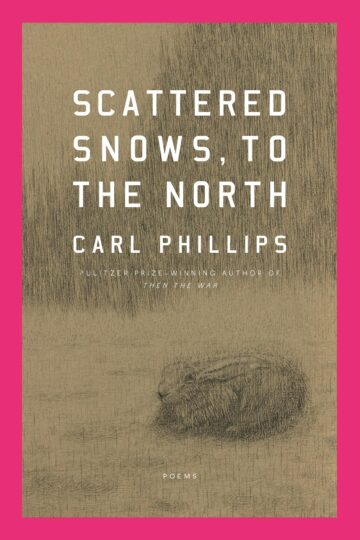An arresting study of memory, perception, and the human condition, from the Pulitzer Prize winner Carl Phillips.
Carl Phillips’s Scattered Snows, to the North is a collection about distortion and revelation, about knowing and the unreliability of a knowing that’s based on human memory. If the poet’s last few books have concerned themselves with power, this one focuses on vulnerability: the usefulness of embracing it and of releasing ourselves from the need to understand our past. If we remember a thing, did it happen? If we believe it didn’t, does that make our belief true?
In Scattered Snows, to the North, Phillips looks though the window of the past in order to understand the essential sameness of the human condition—“Tears / were tears,” mistakes were made and regretted or not regretted, and it mattered until it didn’t, the way people live until they don’t. And there was also joy. And beauty. “Yet the world’s still / so beautiful… Sometimes // it is…” And it was enough. And it still can be.
Reviews
“These poems strike poignant and enduring notes, suffused in ‘the split fruit of late fall,’ which ‘wears best when worn quietly.’ This is another poised addition to Phillips’s dazzling body of work.” —Publishers Weekly (starred review)
“Autumn and winter; aging and death; erotic desire, and our regret if it fades … [Phillips] writes about those simplest, oldest things with a syntax so unpredictable, so elaborate, that they can seem almost new.” — Stephanie Burt, The New York Times Book Review
About the
Carl Phillips is the author of Speak Low, Double Shadow, Silverchest, Reconnaissance, Wild Is the Wild, Pale Colors in a Tall Field, Then the War: And Selected Poems, and several other works. He has been awarded the Pulitzer Prize, Kingsley Tufts Award, the Jackson Poetry Prize, and the Los Angeles Times Book Prize, among other honors. He is professor emeritus of English in Arts & Sciences at Washington University in St. Louis.
